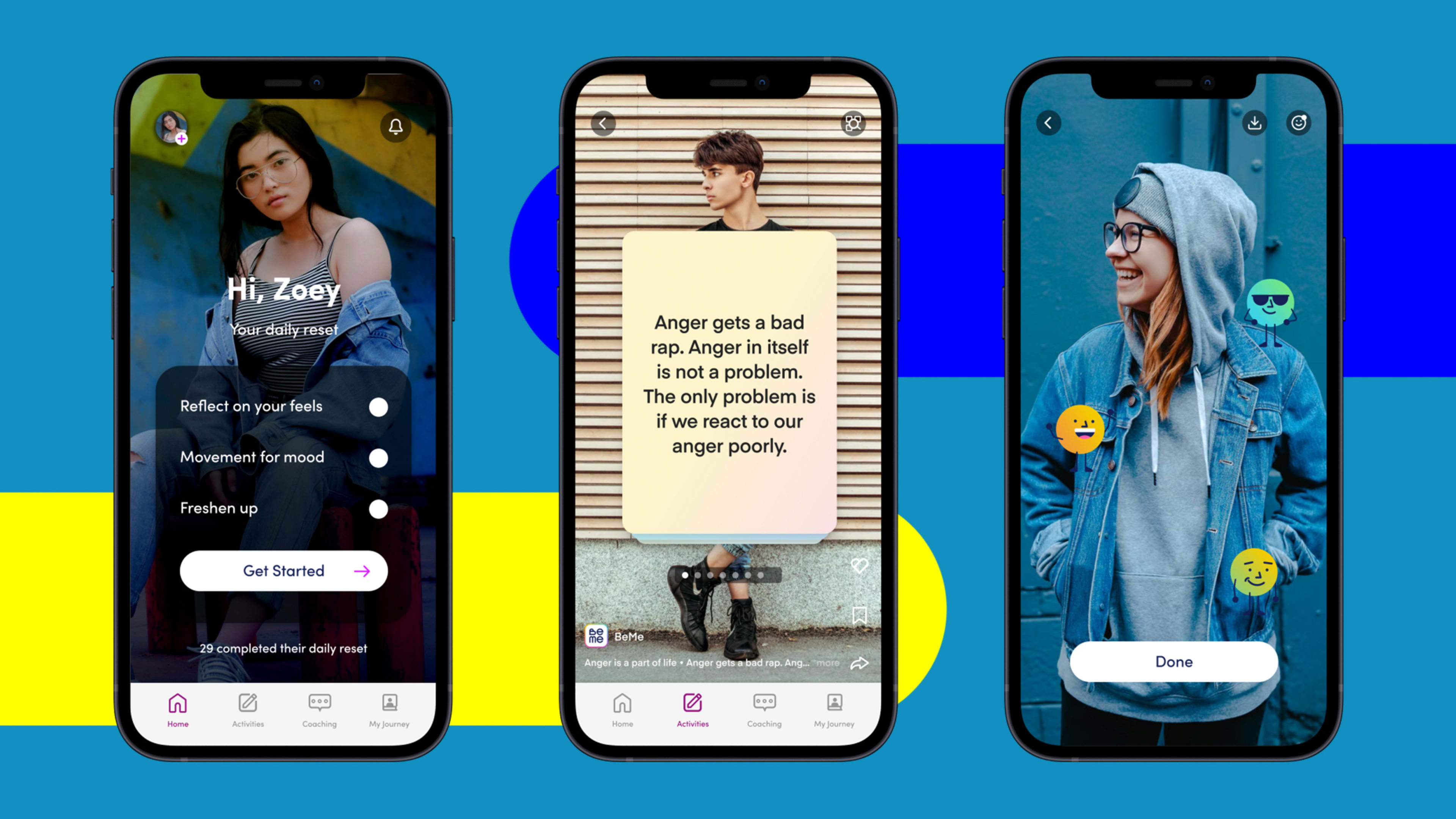The digital behavioral health platform BeMe has raised an undisclosed sum from Carrie Walton Penner through Fiore Ventures, bringing its total fundraising to $17 million since its late 2021 inception, Fast Company has learned.
The fresh injection of cash comes at a time of growing concern about mental health, particularly among younger generations. Last month, the Surgeon General Vivek Murthy released a report warning that social media is driving the mental health crisis among adolescents. Given that context, BeMe’s mission—to make preventative mental health care and support more accessible for younger people—is more pressing than ever.
“Rates of depression and suicide are higher than ever, and teens are reporting frequent hopelessness,” Penner, a philanthropist and an owner of the Denver Broncos, writes in an emailed statement. “We must empower every young person with the tools, skills, and habits of mind to navigate life’s challenges with resilience and ensure mental health services are easily accessible to those in need.”
The company declined to share an exact funding amount. CrunchBase shows that, as of November 2022, the company had raised $13.2 million over two rounds.
BeMe’s app is meant to be a “safe space” for teens to engage with positive content, work through new skills, connect with coaches, and access crisis support when needed. The company has built a 131-member teen advisory council as a way to ensure the content resonates with young users. “Digital natives were looking at the traditional legacy mental health care and saying ‘This paradigm just doesn’t make sense to us,'” says cofounder and CEO Nicoletta Tessler.
The investment from Fiore Ventures can help the company continue to expand its content and reach as data shows rising rates of depression and anxiety across the states. Researchers for the Centers for Disease Control and Prevention reported earlier this year that 22% of high school students seriously considered attempting suicide in 2021. Amid the COVID-19 pandemic, 44% experienced persistent sadness or hopeless, according to the CDC.
BeMe believes that, by intervening early and teaching teens skills to address difficult situations, its app could help alleviate some anxieties. It might also help more quickly identify teens in need of intensive support.
Right now, BeMe provides its content through its enterprise partners—health plans, employers and state-funded programs —who pay for kids to access the service.
Recognize your brand’s excellence by applying to this year’s Brands That Matter Awards before the early-rate deadline, May 3.
